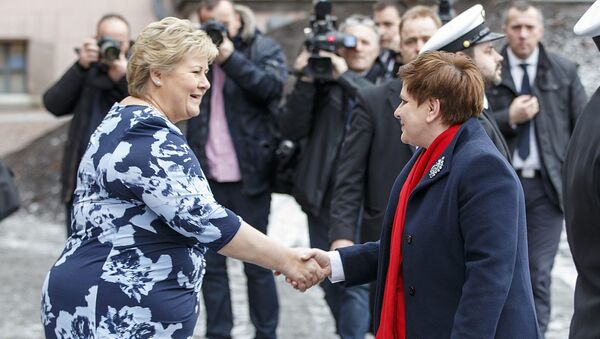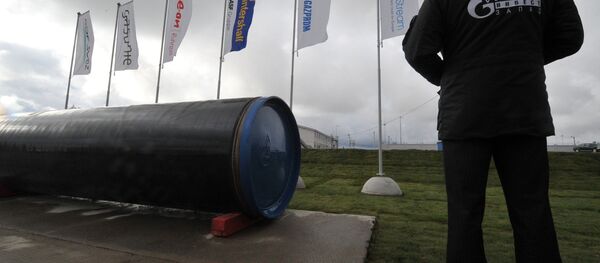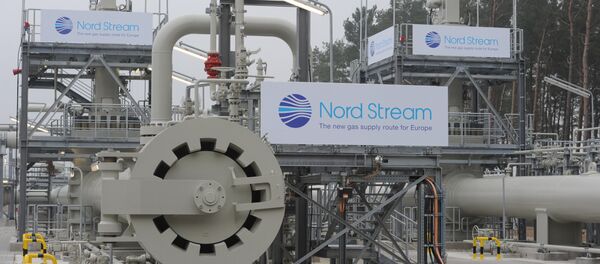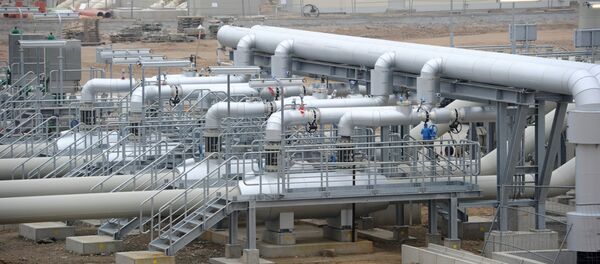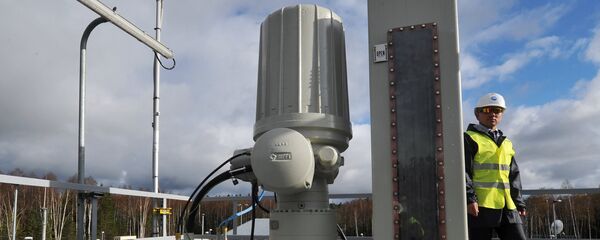At a joint press conference with her Norwegian counterpart in Oslo on Tuesday, Polish Prime Minister Beata Szydlo intrigued reporters, saying that "the Polish government will do everything to ensure a good climate and the right conditions to complete the construction of a gas pipeline from the North Sea to Poland."
In the course of her visit to Oslo, the prime minister expressed hopes for the possible revival of the so-called 'Baltic Pipe' project, which has been kicked around in negotiations between Poland and Denmark for 15 years now. To date, the proposed Baltic Pipe has been plagued by economic feasibility issues, the suspension of the Skanled offshore pipeline project connecting Norway to Sweden and Denmark, and the lack of demand for Norwegian energy supplies.
Meanwhile, commenting on the proposed Nord Stream II project, set to connect Russian and German gas networks via the Baltic Sea, bypassing Poland, Szydlo again suggested that the project was "politically motivated," telling a Russian reporter that it "cannot be justified on economic grounds."
So far, Berlin has brushed off criticism from Poland, the Baltic countries and Brussels over the project, saying that the decision on whether or not to proceed belongs to the German, Western European and Russian companies involved.
"In 2022, the contract with Gazprom will expire. This is a moment toward which we will be looking to diversify [gas] supplies," Naimski explained. At the moment, Russia supplies about 10.2 billion cubic meters to Poland, covering over 60% of Poland's 16 billion cubic meters-worth of consumption.
For her part, responding to Szydlo's comments, Norwegian Prime Minister Erna Solberg noted that "discussing common commercial interests is certainly exciting, as is the possibility of joint gas projects. However, in Norway, such decisions are not taken at the political level. This issue should be dealt with by commercial stakeholders, as was the case with the construction of the LNG terminal in Lithuania, where talks were held with Norwegian companies."
Over the past two years, Poland has attempted to take measures to reduce its dependence on Russian energy supplies, opening an LNG terminal in the northwestern city of Swinoujscie last year. However, as critics soon discovered, the Qatari gas to be supplied to Poland via its Swinoujscie terminal will be significantly more expensive than Russian supplies, and Warsaw may end up canceling the contract.
Commenting on Warsaw's plans for obtaining gas from the north, Sergei Pravosudov, the director of the Moscow-based National Energy Institute, told Russian newspaper Svobodnaya Pressa that effectively, Poland already has the opportunity to buy gas from Norway.
For this reason, Pravosudov suggests, the statements coming out of Warsaw are politically motivated. "The Poles do not have the money to build this [northern] pipeline, nor the real need to do so."
"Ultimately, the story of the LNG terminal at Swinoujscie has already demonstrated the highly eccentric nature of Polish authorities in the energy sector. The terminal is completed, but sits empty, because the gas the Poles contracted in Qatar is fabulously expensive at the moment."
"Right now," the analyst recalled, "Warsaw already pays Qatar a penalty fee not to buy the gas, and is already in talks on renegotiating the terms of the contract or canceling it altogether. At the same time, the Polish government publically says that this is a very good terminal, and promises to build a pipe to Ukraine, so that Kiev may receive its share of the [nonexistent] 'bounty' of LPG gas."
In any case, the analyst says, "production in the North Sea is costly, and current prices for oil and gas will not allow the Norwegians to develop new fields. In my opinion, we cannot expect growth in Norwegian gas output any time in the near future."
For his part, Alexander Pasechnik, the head of the analytical department of the National Energy Security Foundation, agrees with his counterpart that the 'northern route' is a political sideshow.
"By announcing the construction of a gas pipeline to Norway, Poland is trying to get an additional discount out of Gazprom," the analyst suggested, adding that at $180 per thousand cubic meters, according to Gazprom's 2016 estimate, prices are already rock bottom, and can't sink much further. In any case, the Poles will have to wait for prices to rise significantly for investors to take the northern pipeline idea seriously.
Ultimately, however Warsaw may like to speak about Gazprom's 'hegemony', "Poland has a direct interest in the preservation of energy cooperation with Moscow, in its objective demands for energy security. In my opinion, the Poles will put their own energy security above any politically motivated shouting," Pasechnik concludes.
